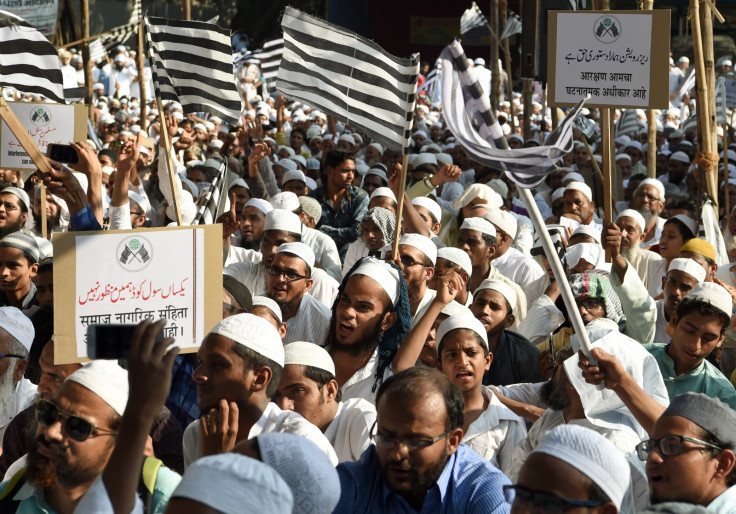'Fighting patriarchy': India takes major step towards ban of 'triple talaq' instant divorce
Women's rights campaigners welcome draft bill but some Muslim groups complain of 'interference' in religious laws.

India's parliament took a major step towards banning the controversial "triple talaq" instant divorce practice on Thursday (28 December) when the lower house passed a bill making it illegal and punishable by up to three years in prison.
The bill, which will now go to the upper house for final approval, comes months after India's Supreme Court ruled that the Muslim practice was unconstitutional.
Several opposition parties criticised Prime Minister Narendra Modi's government for not discussing the bill with them before introducing it to Parliament.
But women's rights campaigners and ministers heralded it as a major step towards gender equality, saying the triple talaq practice is discriminatory and left divorced wives vulnerable.
The draft legislation as it currently stands states that "any pronouncement of talaq by a person upon his wife, by words, either spoken or written or in electronic form or in any other manner whatsoever, shall be void and illegal."
More than 20 Muslim countries, including neighbouring Pakistan and Bangladesh, have banned the practice, which allows men to instantly divorce their wives by simply uttering the Arabic word "talaq" three times.
This can be done in any medium, including with electronic services like Skype or WhatsApp.
In India, the practice has continued under legal protections allowing Muslim, Christian and Hindu communities to follow their own religious law in matters like marriage, divorce, inheritance and adoption.
While most Hindu personal laws have been overhauled and codified over the years, laws for much of India's 170 million Muslims have been left to religious authorities and remain largely untouched.
A survey by Bharatiya Muslim Mahila Andolan (BMMA – Indian Muslim Women's Movement) found nearly 500 women had been divorced through triple talaq last year, with many receiving no financial support or compensation.
BMMA founder Zakia Soman said the proposed ban was a much needed step for Muslim women.
"We have been demanding this law for a very long time now," she told Al Jazeera. "We are entitled by both the Indian constitution and our religion to have a family law which is gender-just.
"In most other Indian communities, the Hindus and the Christians, women have protection of law in the matters of marriage and family. It is only the Muslim women who have been denied legal justice so far.
"We are very clear. We are fighting patriarchy. We are fighting for women's equality. We are fighting because we believe we are equal Muslims and equal citizens."
Kamal Farooqi, a leader representing the All India Muslim Personal Board, an umbrella group of Islamic organisations in the country, said his body was opposed to the practice of instant divorce but argued against the government or courts interfering in religious laws. He said the board was in favour of leaving the divorce issue to the Muslim community to tackle.
But government ministers disagreed. "In the Republic of India, if a woman is suffering owing to the cruelty and inhumanity of triple talaq, should we remain silent?" asked Ravi Shankar Prasad, India's law minister and a senior member of the ruling Hindu nationalist BJP, as he introduced the draft bill in parliament in New Delhi.
He added: "Muslim-majority countries have regulated triple talaq in one go, why can't we as a secular nation do it? We are not interfering in sharia (Islamic law)."






















